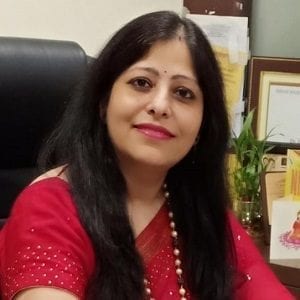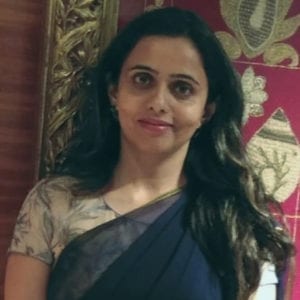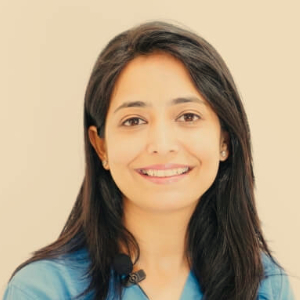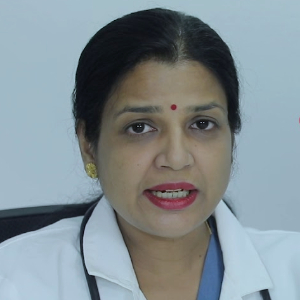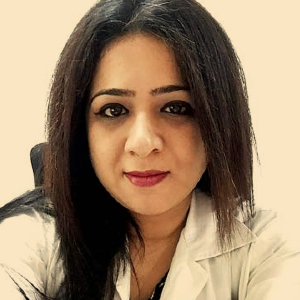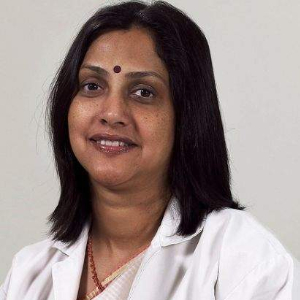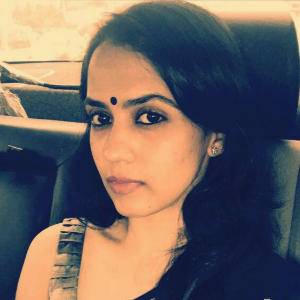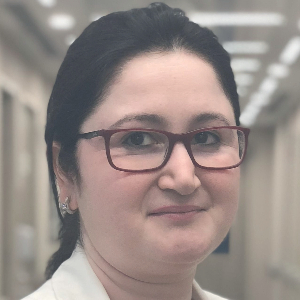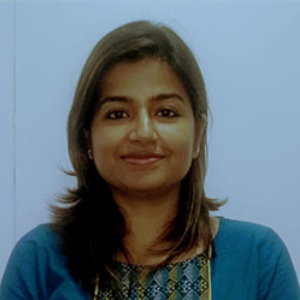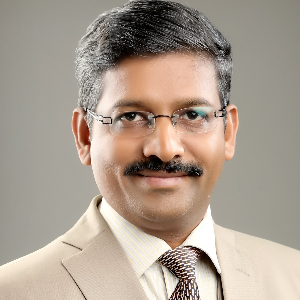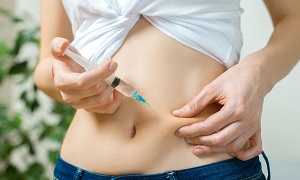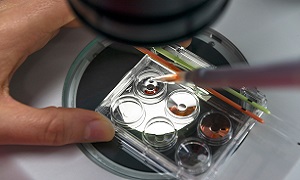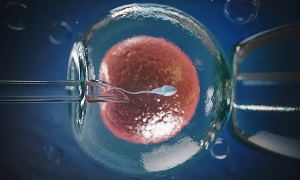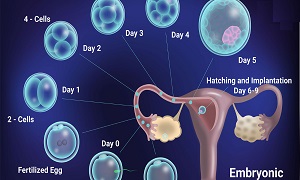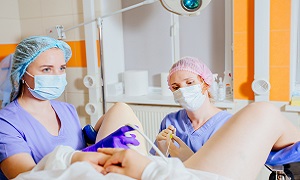Top IVF Specialists in India
- IVF Specialist & Gynaecologist, New Delhi, India
- Over 22 years’ experience
Profile Highlights:
- Dr. Sunita Arora is a leading infertility specialist in New Delhi who specializes in IUI, IVF, laparoscopies, hysteroscopies, and repeated IVF failure cases
- After completing her education, she joined the Department of Obstetrics and Gynecology, at Govt Medical College as a consultant. Later she moved to Mount Sinai Hospital, New York, from where she received her training in IVF and Reproductive Medicine.
- IVF Specialist & Gynaecologist, Gurugram, India
- Over 20 years’ experience
Profile Highlights:
- Dr. Meenu Handa is a gynecologist and IVF specialist, who serves as the Unit Head of the Fortis Bloom IVF Centre at Fortis Memorial Research Institute in Gurugram.
- She specializes in multiple areas which include male infertility, recurrent IVF specialties, intracytoplasmic sperm injection, and endoscopic fertility surgeries.
- IVF Specialist, Gynaecologist & Obstetrician; Mumbai, India
- Over 10 years’ experience
Profile Highlights:
- Dr. Ritu Hinduja is a renowned Infertility expert in Mumbai with experience in the management of infertility and reproductive medicine and has training in all assisted reproduction techniques (ART).
- She holds a Masters degree in Reproductive Medicine and also has a Diploma in the same field from Keil University in Germany.
- Dr. Hinduja’s primary interest lies in the management of patients with fertility issues that include low ovarian reserve and preserving fertility for cancer patients and women who want to delay childbearing by freezing eggs.
- IVF Specialist & Gynaecologist, Bengaluru, India
- Over 15 years’ experience
Profile Highlights:
- Dr. Pallavi Prasad is a well-known Gynecologist in Bengaluru specializing in infertility and IVF.
- Dr. Prasad is a specialist in all kinds of Artificial Reproductive Techniques (ART) including IVF, ICSI, IUI, and IMSI. She also provides services for vitrification and cryopreservation.
- Dr. Pallavi Prasad has also written articles and papers on her field of expertise and has published several columns on infertility and ART in renowned journals and newspapers.
- IVF Specialist & Gynaecologist, Mumbai, India
- Over 24 years’ experience
Profile Highlights:
- Dr. Sulbha Arora is a well-known Gynecologist and Obstetrician and an Infertility Specialist in Mumbai currently working with Nova IVI Fertility.
- She has 24+ years of experience in IVF and Assisted Reproductive Techniques (ART) and has helped a large number of women enjoy the happiness of motherhood.
- Her primary area of focus includes fertility medicine, fertility preservation, third-party reproduction, and ultrasound.
- IVF Specialist & Gynaecologist, Bengaluru, India
- Over 25 years’ experience
Profile Highlights:
- Dr. Aviva Pinto Rodrigues is a Consultant in Gynecology and Infertility and has an extensive experience of over 2 decades in Reproductive Medicine and holds a Diploma in the field from the University of Kiel in Germany.
- Her expertise lies in all forms of ART including IVF, IUI, ICSI, IMSI, and also finds interest in the treatment of genital tuberculosis and reproductive endocrinology.
- IVF Specialist & Gynaecologist, Mumbai, India
- Over 17 years’ experience
Profile Highlights:
- Dr. Sneha Sathe is a consultant gynecologist and infertility specialist in Mumbai and associated with Nova IVI Fertility.
- She has close to a decade of experience in the field of ART and Reproductive medicine and has achieved several successful pregnancies through IVF, IUI, ICSI, and other techniques of assisted reproduction.
- Dr. Sneha Sathe finds special interest in mild IVF and is also experienced in other aspects of gynecology such as management of PCOS, recurrent implantation failure, endometriosis, and failed IVF cycles.
- IVF Specialist & Gynaecologist, Gurugram, India
- Over 18 years' experience
Profile Highlights:
- Dr. Meenakshi Dua is a well-known gynecologist in India specializing in IVF and Infertility.
- She has an experience of 18+ years in the field of infertility treatment and has helped a large number of people with infertility issues.
- Dr. Meenakshi Dua is an expert in all kinds of Assisted Reproductive Technology and is highly trained in reproductive endocrinology, fetal Doppler, and advanced-level ultrasounds in gynecology and obstetrics.
- IVF Specialist & Gynaecologist, Kolkata, India
- Over 10 years’ experience
Profile Highlights:
- Dr. Moumita Naha is a consultant Gynecologist and Obstetrician in Kolkata.
- Dr. Naha is one of the best infertility experts in Kolkata and has assisted in achieving several successful pregnancies in women with various fertility issues.
- She is an expert in IVF, IUI, ICSI, management of infertile couples, recurrent IVF failure, recurrent miscarriage, endometriosis, reproductive endocrinology, sexual medicine, and Andrology.
- IVF Specialist & Gynaecologist, Bengaluru, India
- Over 20 years’ experience
Profile Highlights:
- Dr. Mahesh Koregol is a well-known gynecologist and obstetrician in Bengaluru with extensive knowledge and expertise in infertility treatment and Reproductive medicine.
- He provides infertility treatment for both male and female patients that includes IVF, IUI, ICSI, TESA, PESA, sperm analysis, etc.
Best IVF Clinics in India
IVF Procedure
In-Vitro Fertilisation (IVF), also called Test Tube Baby is a process of fertilization where an egg is combined with sperm outside the body, in vitro. The process involves monitoring and initiating a woman’s ovulation process, removing an ovum or ova (egg or eggs) from the woman’s ovaries and letting the fertilization process in the laboratory. After the fertilization when the embryo is formed, it is implanted in the same or another woman’s uterus.IVF is a type of assisted reproductive technology used for infertility treatment and gestational surrogacy.
IVF Procedure Explained
The IVF cycle takes about 3 weeks’ time and has six main steps. Following is a step-by-step explanation of an IVF Procedure.
Step 1: Ovarian Stimulation
In this step, the IVF specialist will monitor your ovaries and the timing of egg release. They will ensure that your ovaries are releasing eggs and the hormone level (among other things) are normal.
Depending on the protocol followed, you may be required to take fertility medicines or hormones to stimulate your ovaries to produce more eggs, so that chances of pregnancy is maximized by IVF.
Patients who are not able to produce enough healthy eggs can have the option of going with donor eggs.
Step 2: Egg Pick-up
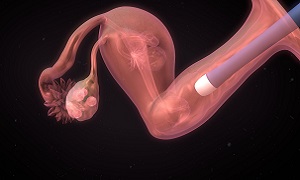
During this step in the IVF process, pain medication is given to reduce any discomfort. Then a very thin needle is passed through the upper vaginal wall. With the use of vaginal ultrasound, fluid is removed from the follicles under gentle suction.
Immediately after aspiration of the follicle, the oocyte (egg) is isolated from the follicular fluid. The egg is placed in a culture dish containing nutrient media and then transferred to the incubator.
Step 3: Sperm Preparation
The male partner has to be present at this stage to give sperm for the IVF process. Generally, sperm is provided on the day of egg retrieval. However sometimes sperm can be collected in advance and frozen for use after egg retrieval. While generally sperm is donated through ejaculation, in cases where male partner is not able to donate enough healthy sperms through ejaculation, sperm retrieval procedures like microepididymal sperm aspiration (MESA), or testicular sperm extraction (TESE) is used. It is recommended to avoid intercourse for 2 days prior to sperm donation but not more than 6 days for best quality sperm.
Step 4: Egg Fertilization
The next step of the IVF process is the fertilization of the egg. A sperm sample is secured, either from your partner or a donor, and the most active sperm is mixed with the egg in a special chamber. Sometimes the sperm is directly injected into the egg (ICSI Procedure). Then, the sperms and eggs are placed in an incubator and monitored to make sure that enough healthy embryo develop.
Step 5: Embryo Development
Eggs undergo several stages of development, like Zyogote, Cleavage and Blastocyst phase. Not all embryos will grow in culture, only those cells that reach the Blastocyst stage are considered for transfer to uterus. Generally, more than one embryo is considered for transfer to maximize chance of success in IVF. However, this also increases the chance of twins or triples in IVF. Your IVF Specialist will discuss with you about the number of embryos to transfer and the decision is generally taken mutually after evaluation of pros and cons.
Step 6: Embryo Transfer and Implantation
The final step of the IVF process is the embryo transfer. First, the embryos are examined to select the healthiest ones for transfer. To transfer the embryo(s), a speculum is placed into your vagina and the embryo(s) are transferred via a small plastic tube placed through the cervix into the uterine cavity. After the IVF process is complete, bed rest is often advised for around 24 hours.
FAQs
What is the Success Rate of IVF?
The success rate of IVF in a good clinic is generally in the range of 30-50%. Success rate of IVF depends on the age of the couple, specially the female, the quality and quantity of sperm and ova, the overall reproductive health of the female partner and a variety of other factors.
How long does an IVF cycle take?
IVF procedure normally is started on 2nd or 3rd day of your menstrual cycle. First stimulation doses are given, and then egg retrieval and subsequent transfer are done. The whole process will take 3-4 weeks in a cycle. The procedure doesnt require getting admitted to hospital, it is a day procedure.

